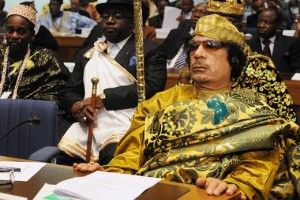Pan Am Reparations Paid By Oil Firms
WASHINGTON — In 2009, top aides to Col. Muammar el-Qaddaficalled together 15 executives from global energy companies operating in Libya’s oil fields and issued an extraordinary demand: Shell out the money for his country’s $1.5 billion bill for its role in the downing of Pan Am Flight 103 and other terrorist attacks.
If the companies did not comply, the Libyan officials warned, there would be “serious consequences” for their oil leases, according to a State Department summary of the meeting.
Many of those businesses balked, saying that covering Libya’s legal settlement with victims’ families for acts of terrorism was unthinkable. But some companies, including several based in the United States, appeared willing to give in to Libya’s coercion and make what amounted to payoffs to keep doing business, according to industry executives, American officials and State Department documents.
The episode and others like it, the officials said, reflect a Libyan culture rife with corruption, kickbacks, strong-arm tactics and political patronage since the United States reopened trade with Colonel Qaddafi’s government in 2004. As American and international oil companies, telecommunications firms and contractors moved into the Libyan market, they discovered that Colonel Qaddafi or his loyalists often sought to extract millions of dollars in “signing bonuses” and “consultancy contracts” — or insisted that the strongman’s sons get a piece of the action through shotgun partnerships.
“Libya is a kleptocracy in which the regime — either the al-Qadhafi family itself or its close political allies — has a direct stake in anything worth buying, selling or owning,” a classified State Department cable said in 2009, using the department’s spelling of Qaddafi.
Click here to read more.


